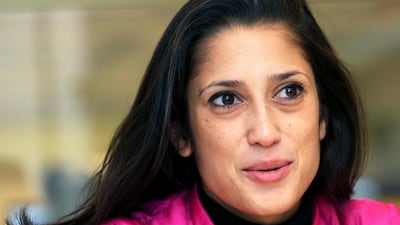Fatima Bhutto is staring out of the window of her publisher's office. The view down the Thames is remarkable. But Benazir Bhutto's niece - and the daughter of the activist Murtaza Bhutto - has Pakistan firmly on her mind, despite her writing taking her all over the world. "People ask me: 'Why do you stay there?'" she says.
It's a valid point: her father was killed by police in 1996 and in Fatima's fascinating family history of 2010, Songs of Blood and Sword: A Daughter's Memoir, she suspected her aunt's involvement in his death. Benazir was assassinated six years ago. In the book, Fatima talks of crying for five days straight when she found out.
Pakistan discovered
"You stay in Pakistan in the hope that this place born of so much bloodshed could mean something, that it could be just and provide belonging and space for people," she says. "It hasn't done that yet. Some of Pakistan is dark and grim, but it's also a place that everyone knows ought to be better than it is."
Bhutto didn't shy away from Pakistan's problems. After Songs of Blood and Sword, she travelled around the northern regions of the country, so often characterised as lawless and dangerous. "It was a part of the country that had confused and frightened me," she admits. "I was writing a column for a Pakistani newspaper and I didn't really like commenting on things I wasn't completely sure of.
"So I wanted to see this place that only gets mentioned in connection with drone strikes, suicide bombs and terror camps. I wanted to tell the story of the people who get completely lost in the headlines. And once I started, it just grew."
A true account
Bhutto has written poetry and is a journalist of some regard, but she realised that the area on the Afghanistan border - Waziristan - would be better framed in a novel. The result is her impressive debut novel The Shadow of the Crescent Moon, a day in the life of three brothers. There are disappearances and revolutionary plans, confrontations and terrorist activity. But time and time again, Bhutto asks her readers to confront their prejudices about this part of the world.
"I think fiction allows you the freedom not to take sides," she says. "You don't have to say: 'This is good, this is bad.' It forces empathy out of the writer and reader. So if I'm on a 'side', it's of the people wanting to live normal lives."
Power to women
"When you go there, you don't see extremists or bogey men. You see families, people protecting each other. And I was struck by the women. There's this idea of women being oppressed in this part of the world, but actually they are immensely brave - they are the pulse of life in Pakistan, which is extraordinary given that they face such turbulence. But that's never the image portrayed."
Even though the story nominally tracks the actions of three brothers, it's the women who provide its momentum. Samarra is overwhelmed by the war that has overcome the place of her birth; Mina is initially a disturbing character but becomes the book's voice of hope. Although Bhutto has always been on the side of women, she is often criticised for speaking from a position of privilege.
"Yes - and all the people who say that are the people who live next door to me, who don't leave Karachi and have no interest even in crossing the city to see how the majority live," she says with a laugh. "Because of my family, I've travelled all over the country, seen the villages. And what these people want from you is to not ruin their privilege, because they have schools and health care and water - so why cause a fuss? They bully you and think it will stop you from speaking."
Bhutto trails off. I tell her she's sounding political. "I would never go into politics," she says firmly. "I always wanted to be a writer. And this," she says, gesturing at her debut novel, "is my way of engaging with the country."
. The Shadow of the Crescent Moon (Penguin) is out now
artslife@thenational.ae

Fatima Bhutto wants to tell a story from the margins
Fatima Bhutto, the author of the new novel The Shadow of the Crescent Moon, says fiction is the best way for her to engage with the country synonymous with her family.
Most popular today
